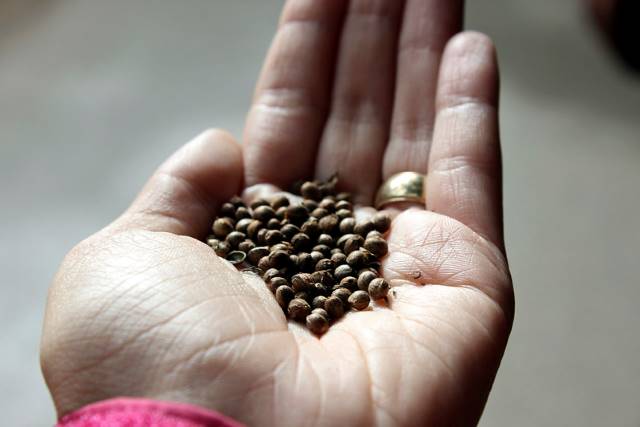Government-Approved Hemp Production in Pakistan
 In September 2020, the Pakistani Government approved industrial hemp production, legalizing hemp and allowing hemp farming in agricultural sectors. Hemp is a type of cannabis plant, used commonly for medicinal purposes due to its cannabidiol (CBD) concentration. Considering the many benefits of hemp production, this landmark decision brings exciting possibilities for many areas in Pakistan. Since the economy of Pakistan has been long in need of a boost, the new approved hemp production and legalization is said to bring economic benefits to the country.
In September 2020, the Pakistani Government approved industrial hemp production, legalizing hemp and allowing hemp farming in agricultural sectors. Hemp is a type of cannabis plant, used commonly for medicinal purposes due to its cannabidiol (CBD) concentration. Considering the many benefits of hemp production, this landmark decision brings exciting possibilities for many areas in Pakistan. Since the economy of Pakistan has been long in need of a boost, the new approved hemp production and legalization is said to bring economic benefits to the country.
The Economic Benefits of Hemp Production
Officials in Pakistan’s government encouraged hemp legalization and production in efforts to relieve fiscal deficits and Pakistan’s struggling economy. Considering the industrial hemp market is worth about $25 billion globally, Pakistan’s science and technology minister, Fawad Chaudhry, says Pakistan is aiming for a profit of $1 billion over the next three years by joining the global hemp market. Exports in hemp can target CBD oils and cannabis-based products and can be a sustainable cotton replacement during slowdowns within the cotton industry.
A Sustainable Replacement for Cotton
Hemp production in Pakistan is most exciting to the workforce, especially for farmers participating in hemp markets and those working within the cotton industry. Cultivating hemp will create more jobs for the small-scale farmers responsible, but more importantly, become a sustainable replacement for cotton in Pakistan’s markets. As the fourth biggest cotton producer in the world, Pakistan’s cotton production has been declining due to climate change, water scarcity, locust attacks and industrial imbalances such as declining prices and low-grade seeds. The hemp plant’s stalk has strong properties of cellulose-rich fiber which is an effective ingredient in the making of paper, rope, construction and reinforcement materials, due to its strong fiber components. Hemp, therefore, makes for a worthy sustainable replacement to cotton.
Hemp Research Possibilities
For researchers, hemp production in Pakistan is exciting for many reasons. With the new hemp legalization, hemp research is no longer taboo, according to Muhammed A. Qayyum, an advisor in the Pakistani government and the director of Medics Laboratories. With this new allowance, researchers can delve into more potential applications of hemp in medicine and more.
Medicinal Properties of Hemp
Advocates have listed numerous medicinal properties to hemp, more specifically, the chemical cannabidiol (CBD) within the plant. Cannabis is seen as medically beneficial as the cannabinoid compound is said to relieve pain and regulate appetite, mood, memory inflammation, insulin sensitivity and metabolism. Hemp is also a valuable food supplement, incorporated in gluten-free products to increase nutritional value from hemp’s high levels of fiber and proteins.
The Potential of the Hemp Industry in Pakistan
With this new federal approval, Pakistan can enter global markets as a new exporter of CBD with the ability to generate millions of revenue similar to China, the United States and India. Hemp production in Pakistan opens up a wide range of possibilities but also brings thousands of jobs across multiple fields such as farm work, production, marketing, transportation, research and medicine. As a flexible crop, the hemp market can address several demands, from textiles, clothing, home furnishing and industrial oils to cosmetics, food and medicine. Holding an overall market value of more than $340 billion and 263 million cannabis consumers worldwide, Pakistan’s economy can shift dramatically with the newly approved hemp production.
– Linda Chong
Photo: Flickr
